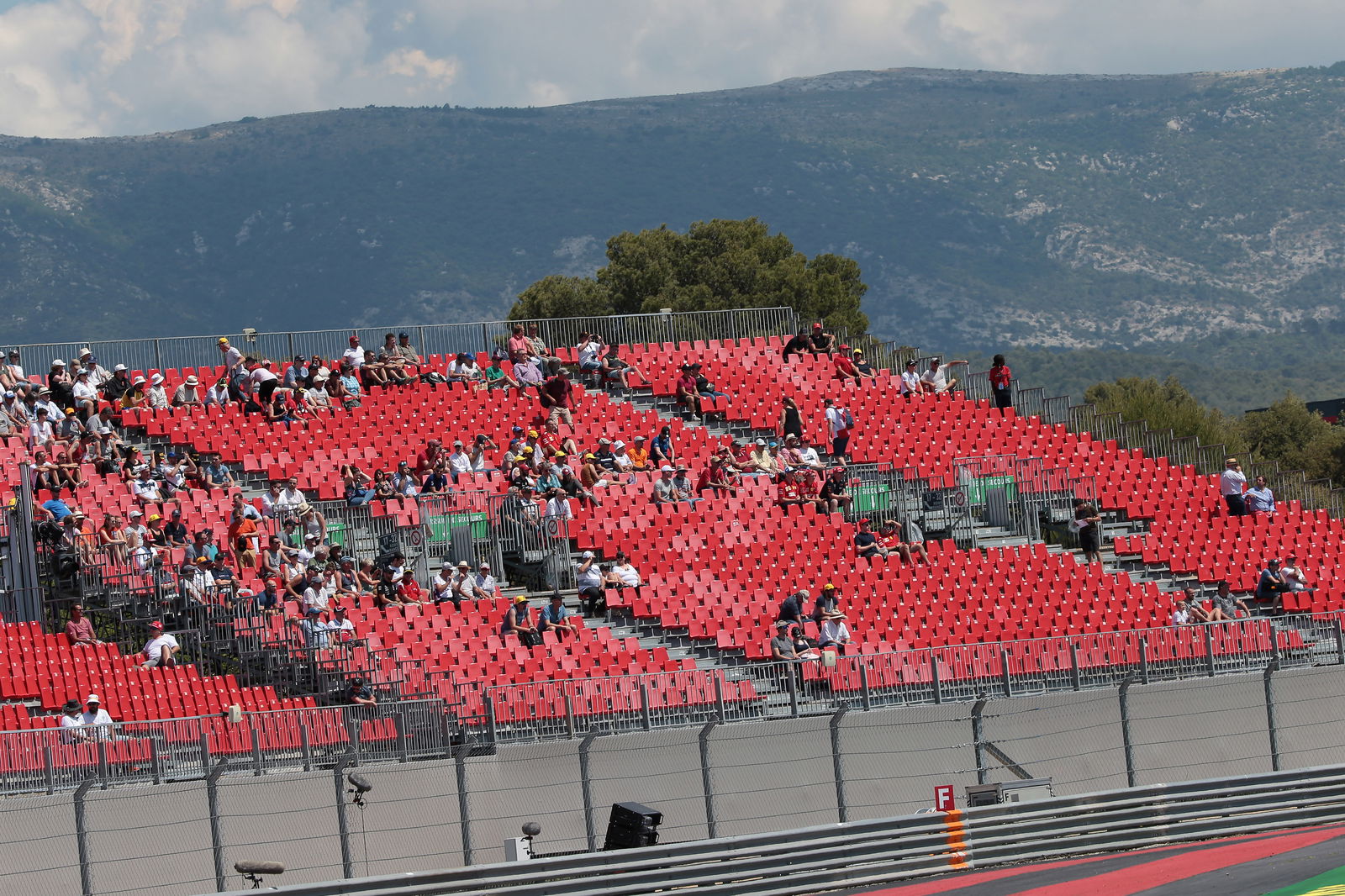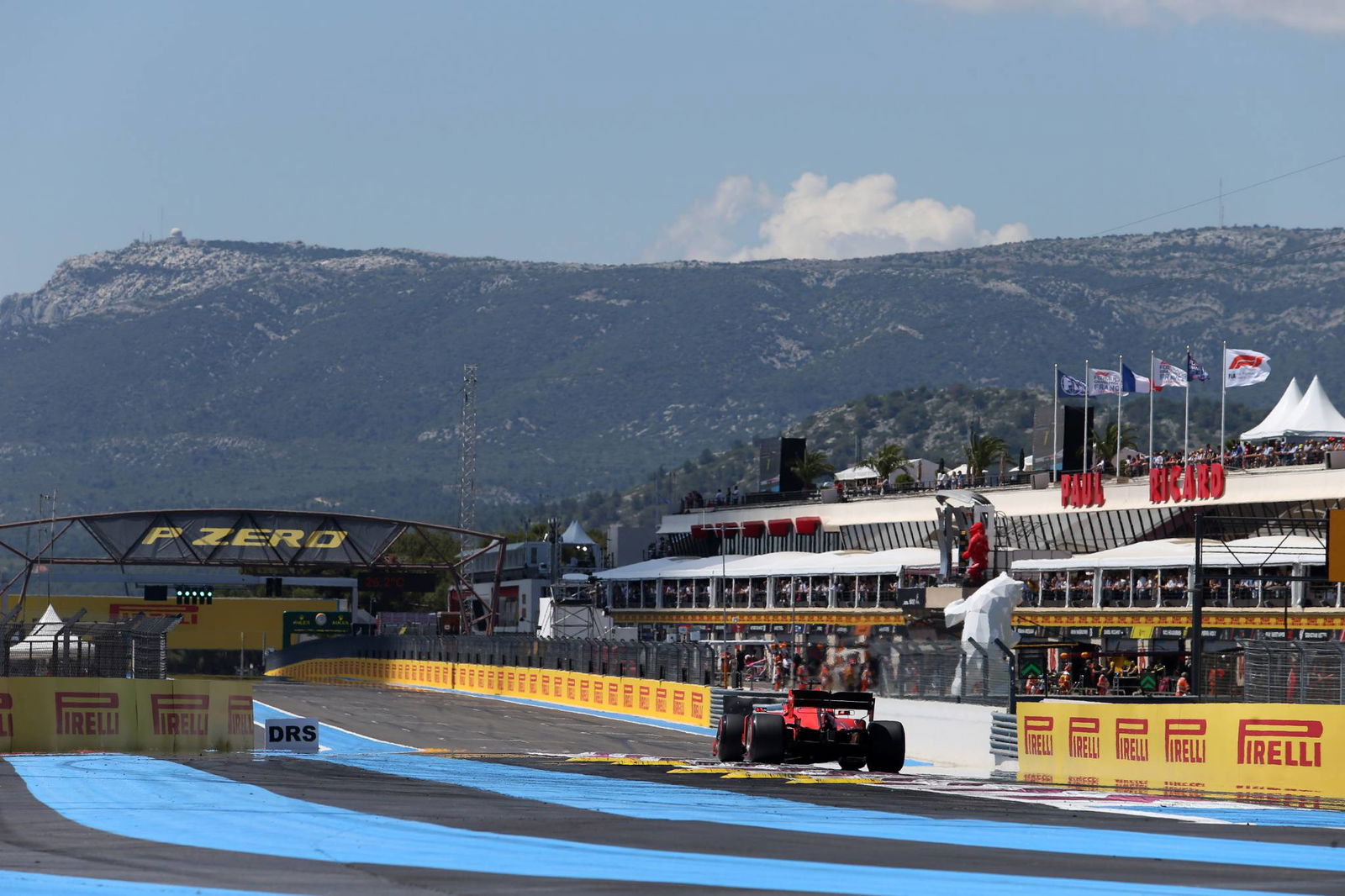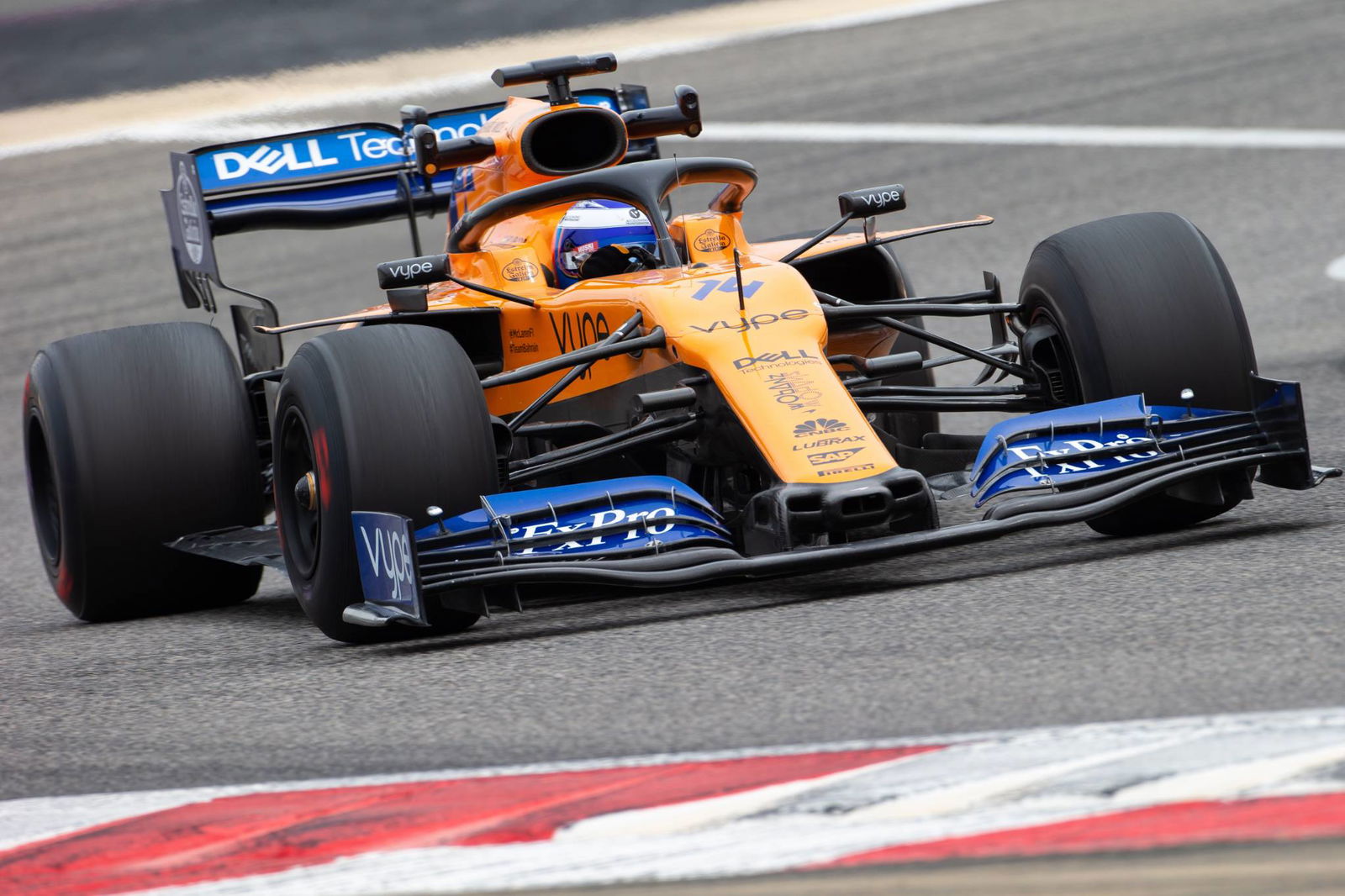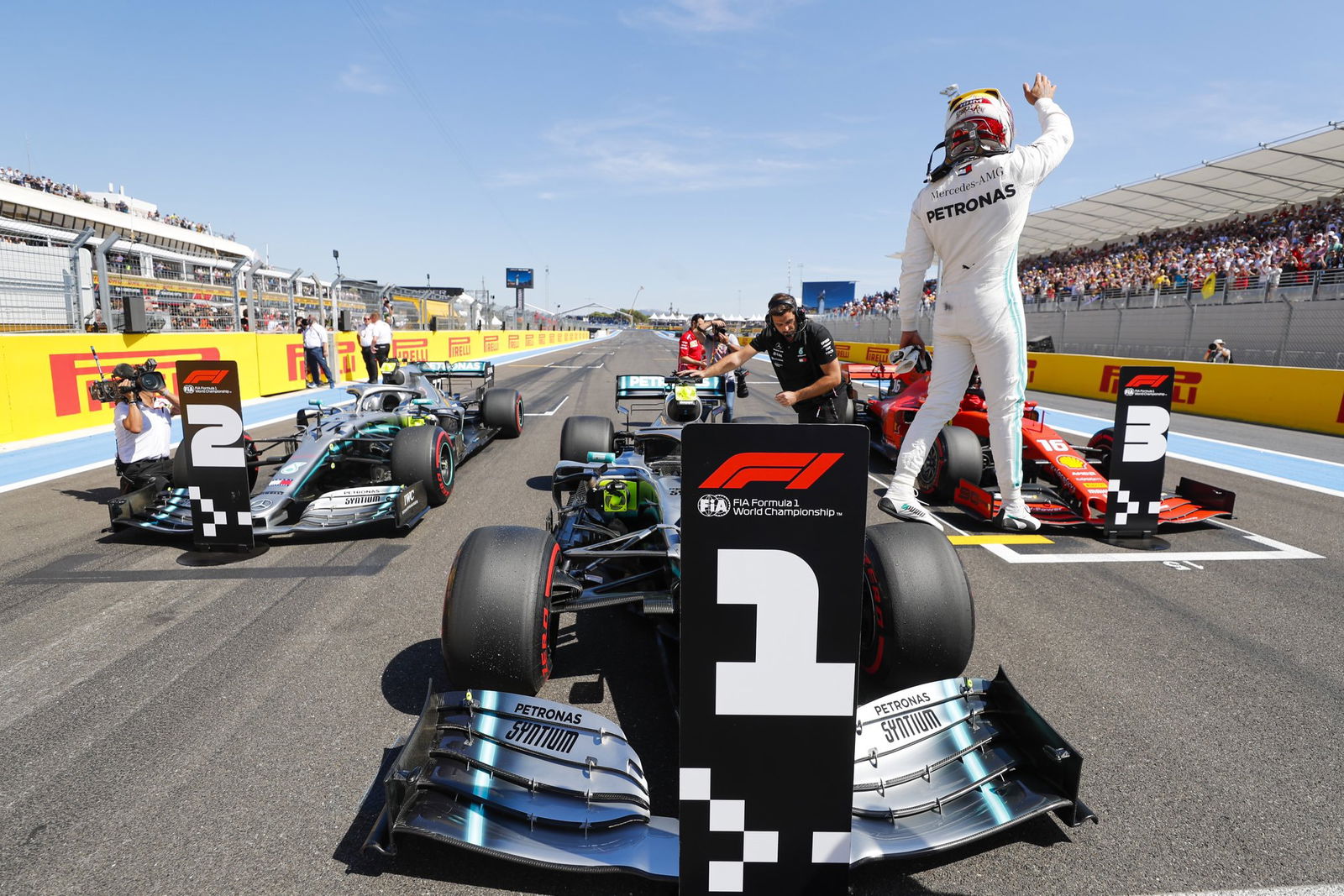Why duty called for Eric Boullier at the French Grand Prix
A lot has changed for Eric Boullier in the last 12 months, with his return to Paul Ricard this weekend seeing him operate in a drastically different capacity over his home grand prix weekend.
Last year’s French Grand Prix marked the beginning of the end for Boullier in his role of racing director at McLaren. A brutal Friday press conference saw tensions flare over ‘Freddogate’ – a story that emerged in the British press about Freddo chocolates being awarded as bonuses at the team – as Boullier took much of the slack for McLaren’s faltering start to the year.

A lot has changed for Eric Boullier in the last 12 months, with his return to Paul Ricard this weekend seeing him operate in a drastically different capacity over his home grand prix weekend.
Last year’s French Grand Prix marked the beginning of the end for Boullier in his role of racing director at McLaren. A brutal Friday press conference saw tensions flare over ‘Freddogate’ – a story that emerged in the British press about Freddo chocolates being awarded as bonuses at the team – as Boullier took much of the slack for McLaren’s faltering start to the year.
Plans were already afoot for him to be replaced. McLaren Racing CEO Zak Brown had already made a first approach to then-Porsche man Andreas Seidl one week earlier at the 24 Hours of Le Mans. And two weeks after Freddogate began, it was the end for Boullier, whose departure was confirmed ahead of the British Grand Prix.
“I had a lot of time for me, which was good as well to reconnect with a normal and family life,” Boullier says – even if the pull of getting back into racing quickly proved too strong.
When an opportunity arose to join the promoters for the French Grand Prix in an consultancy role, Boullier was quick to jump on-board, even if it took him to the ‘other’ side of the fence away from team management.
“The stress is different,” he says. “I can’t compare. You don’t have the mix of stress and adrenaline and rush, even if I ended up getting so busy. I don’t know why, but I’ve always made myself so busy!
“When you manage a team, every two weeks, you assemble the team, you have to be ready and leave the garage at 10 o’clock on Friday morning. When you do it for a grand prix organisation, it’s once a year, and not all the people are used to getting this rush and working under pressure.
“Any new experience is always good, because there is something to learn. I’m enjoying it. It’s different.
“The big thing for me is what is going to be next. Because on June 23 when you go to bed and wake up the next morning, you’ve worked all these months to make this event, and now the next one is in one year, not two weeks. It’ll be a strange feeling I think.”
Boullier’s arrival came following a troubled first running of the race at Paul Ricard last year, marred by traffic issues that left fans stuck for hours on end trying to get in and out of the circuit. Unsurprisingly, ticket sales have taken a hit, but a more considered approach from
“Traffic and mobility was the black point, the negative point by far,” Boullier says. “I think the approach has been very cautious, but it has been the right one. It has been to take all the data from last year, make sure we know we do not leave any stone unturned and make sure we can’t fail a second time. They chose the right partners, and I think they have been evaluating or assessing any kind of scenario to make sure there is no traffic.
"The work as well with the local authorities was key to develop, to make sure there is one guideline respected by everybody and all parties, and I’m pretty sure this year will be OK.” By raceday, there have been few traffic complaints from either fans or the teams – even if the grandstands are noticeably sparse compared to last year…

One of the big successes of the French Grand Prix has been its pre-event roadshow, which saw it take some classic F1 cars to 14 cities in the build-up to the race to help drum up interest.
“We had half a million people turning up on our 15 dates in 14 cities, over six weeks I think. It’s astonishing to see,” says Boullier. “Last year we did six dates, and we had a massive attendance. Then finally, we had so many cities asking us to do this, so then we turn this model into a Tour de France model. We could go to maybe 25 dates or even more.
“As a promotional tool for F1, it’s really unique. Liberty is doing this big, big show, which is good, great in big cities, but we decided to do small, local cities, and it worked the same. At the end, you’re in contact with half a million people, people who are very emotionally attracted by the show and F1. They smell the tyres, they meet the drivers, and actually it was like a mini party around this event. I did three of them, and I was amazed. The French people were so enthusiastic about Formula 1. It’s helped to keep F1 awareness high.”
Even amid last year’s traffic debacle, the race proved popular with paddock folk given its location and timing. After all, there are worse places to be than the south of France at the height of summer. One journalist even dubbed it the ‘Holiday Grand Prix’.
“To be on the eve of the big summer slot is perfect,” says Boullier. “Don’t forget as well our business model is that we’re supported by the region, the district, and obviously promoting their value is part of the grand prix as well.
“Having the ‘Holiday Grand Prix’ on the French Riviera, trying to explain to people to come to the grand prix: there is not only the grand prix, you can spend your holiday there or come back later and spend your holiday there, because it’s maybe one of the most visited spots in the world.”
For Boullier himself, linking up with the French Grand Prix saw him come full circle, having played a key role in securing the return to Paul Ricard.
“It’s been in the background - the shadow of my life, if you want, without negative! – for nearly nine years,” Boullier says. “When your prime minister calls you and you’re in the office, first you’re impressed, because this is something unusual, and when you're asked as one of four people to try to bring the French Grand Prix back, then it’s the work that you do in your free time - it’s a sort of duty you have.

“You are mandated to do this job again, you say OK, I’m going to do it. Then you do it. Then for me, my mission was finished. They signed, shook hands, whatever with Bernie [Ecclestone] and Liberty, and my mission was done. Then I turned up at the grand prix last year, and I was like ‘oh my god, that’s a nice event!’ You look at the event a bit differently because it’s your country, because you participate in it.
“When the opportunity came up, I said ‘why not?’ You helped to do this, why not now be part of it and help work from the inside?”
While Boullier avoids ranking his role in returning France to the calendar among his career achievements, his pride when speaking about the deal is obvious.
“I think the day I saw Christian Estrosi and Bernie shaking hands in this little room at the FIA, I remember, people watching asked me saying ‘what’s going on?’ And I said ‘it’s done’. ’What do you mean?’ ‘When Bernie shakes hands, it’s done’.
“Three days later, the contract was in the post. Turning up there last year at Paul Ricard, I was like wow.”

